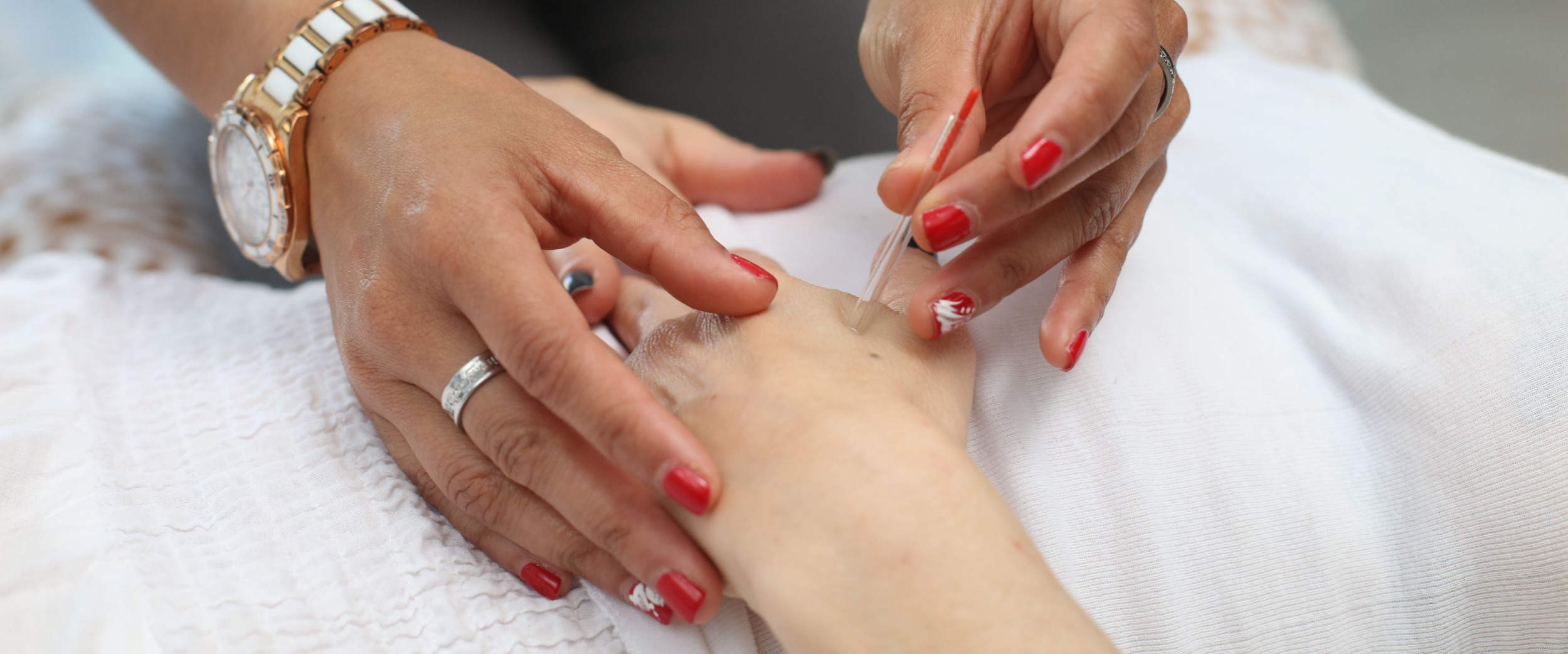Like tai chi and qigong, acupuncture is another form of traditional Chinese medicine that has become a popular therapy used in the cancer community for help with side effects.
What is it?
Acupuncture uses very thin needles inserted in specific areas of the body to help balance a person’s chi. It has been used for centuries to promote health and wellness and traditionally it was thought that the needles balance energy flow along meridians, or pathways, throughout the body. In modern medicine, acupuncture is actually shown to “stimulate nerves, muscles and connective tissue.”
How does it work?
Thin stainless-steel needles are inserted just below the skin. They are not inserted very deep, but some people can feel a slight pinch when they are inserted. During treatment, you should likely feel very little sensation from the needles if you keep yourself still and relaxed. A single session can last anywhere from 10 minutes to half an hour. After your first session you may feel disoriented and there may be a short-term increase in your symptoms. These side effects will dissipate, and your symptoms will begin to improve.
It’s important to discuss your condition, medications including vitamins or supplements and any cancer related side effects that you may be experiencing so that the practitioner can adjust your treatment based on your needs.
How can it help?
Most commonly, acupuncture has been found to help alleviate nausea and vomiting as well as pain caused by the cancer itself or cancer treatment. It has also shown to help with other side effects of cancer including:
- Fatigue
- Chemotherapy induced neuropathy
- Depression or anxiety
- Hot flashes
- Insomnia
It has even been shown to possibly improve quality of life in palliative care.
As always, speak first with your oncology team about the possibility of beginning acupuncture treatment for your side effect management.
Where to find an acupuncturist
When looking for a qualified acupuncture therapist, it is important to find someone who specializes in treating cancer patients. The Chinese Medicine and Acupuncture Association of Canada outlines what makes a person a qualified acupuncturist and provides a database for finding a practitioner in your area.
Photo by Antonika Chanel on Unsplash







